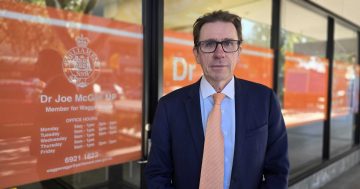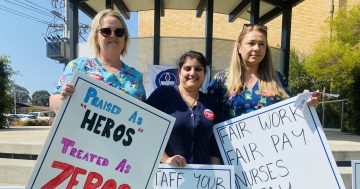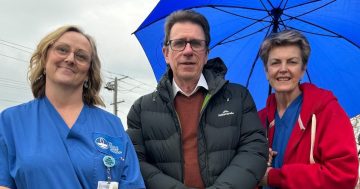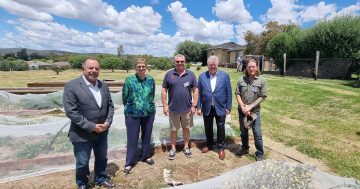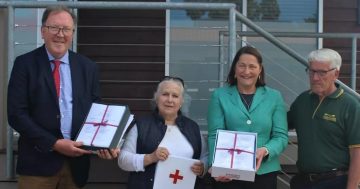
Wagga pharmacist Luke van der Rijt uploaded a video to Facebook warning of the potential impact of PBS changes. Photo: Supplied.
Some regional pharmacists are concerned that changes to dispensing rules could lead to shortages and leave patients without access to essential medication.
The Commonwealth is proposing to double the dispensing limit from 30 to 60 days for 320 medications related to chronic illness on the Pharmaceutical Benefits Scheme (PBS).
The plan promises to halve the fees the Government pays each time a pharmacist dispenses PBS medicines and Health Minister Mark Butler promised that it would make health care more affordable.
“This will halve the cost of medicines for, we think, six million patients at a time of enormous cost of living pressure,” he said at a media conference on Wednesday (26 April).
“This will not impact the supply and demand of these 300 medicines over a period of time. We’ve deliberately decided to phase in these arrangements over the course of this year and next year so that pharmacists are able to change their itinerary arrangements.”
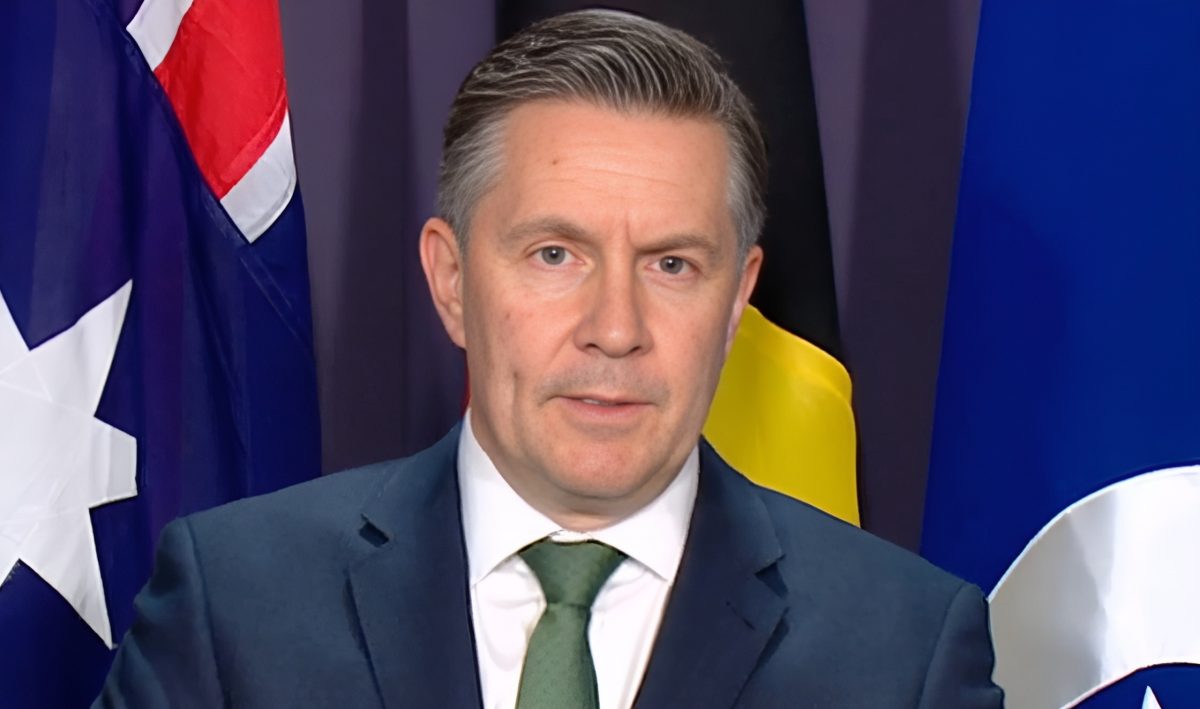
Health Minister Mark Butler says the PBS changes will save the Government and patients billions. Photo: Supplied.
The Pharmacy Guild of Australia has pushed back, warning of supply shortages and financial impacts for pharmacies.
Owner of Wagga’s South City Pharmacy, Luke van der Rijt said that while it sounded good on the surface, it might have unintended consequences for an already stretched system.
“At the moment we deal with over 100 to 200 ‘out-of-stocks’ per day, so you’re looking at doubling that,” he said.
“We’ve got a really fragile distribution network in Australia so you’re going to see an increase of out-of-stocks on common medications.”
Mr van der Rijt posted a video to the pharmacy’s social media this week outlining his concerns and warning that the hoarding of medication and wastage could also increase and the financial cost to pharmacies may make some unsustainable.
“It’ll change the way pharmacies operate by reducing remuneration overnight and things like opening hours, late-night trade, weekends and public holidays will have to be assessed,” he said.
“Some smaller pharmacies in the outer suburbs and those remote regions may not be viable and the Government really hasn’t explained to us how it’s going to work and how it’s going to be implemented.
“So there’s a lot of concerns for us on that.”
Federal Member for Riverina Michael McCormack has slammed the proposal, describing it as “city-centric” and warning of the impact on services in the bush.
“West Wyalong pharmacist Brian Monaghan was irate – he told me costs to local pharmacists would go through the roof and force people out of business, leaving patients high and dry,” Mr McCormack said.
“These proposed changes will surely cause significant drug shortages in the short term and likely lead to pharmacy closures in small communities which can ill afford to lose such a vital service.
“Our most vulnerable people will suffer if this inept plan comes to fruition.
“It will kill off local pharmacies in our small communities because they will be forced to vastly increase their stock holdings.”
State Member for Wagga, Dr Joe McGirr acknowledged that while it was a federal issue, it could have local health ramifications.
“I think it will be very popular with constituents, but it is something I’m interested in and will be watching closely,” he said.
“I do note that there’s been a concern with medical supply shortages in the last 12 months and the pressure on emergency departments remains pretty full-on.”
The changes are expected to be implemented from 1 July.
Original Article published by Chris Roe on Region Riverina.







